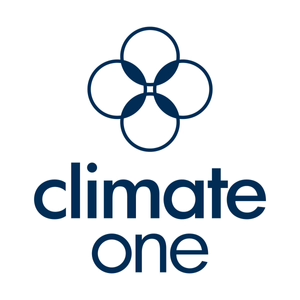
Episode 6: Misperceptions of Chemistry
10/29/19 • 20 min
We’ve all heard the word, "chemical," be used to insinuate toxicity, danger, or harm. But what, exactly, is a chemical? And what does chemistry have to do with helping the Ocean Research and Conservation Association carry out its environmental work? Before we go throwing around the word, “chemicals,” in a negative way, we wanted to clarify some of chemistry’s most common misperceptions; so, we brought in an expert-in-the-making: Yale University chemistry major, Jaeger Johnson.
For the second year in a row, ORCA was pleased to have Johnson as a summer intern. Host, Aurora Aparicio, sat him down between lab experiments to get to the heart of how scientists think about chemicals and perhaps how we can start thinking about them, too. Their conversation unveils what it takes for an ordinary chemical to be considered a harmful pollutant and to whom.
In this episode, you’ll learn about elements, chemicals, chemical reactions, and the distinctions between different branches of chemistry and how they augment environmental science. You may also be surprised to hear about some familiar chemicals your family already knows, loves, and uses daily.
As always, thanks for listening and be sure to check out how you can help save the environment at www.teamorca.org
We’ve all heard the word, "chemical," be used to insinuate toxicity, danger, or harm. But what, exactly, is a chemical? And what does chemistry have to do with helping the Ocean Research and Conservation Association carry out its environmental work? Before we go throwing around the word, “chemicals,” in a negative way, we wanted to clarify some of chemistry’s most common misperceptions; so, we brought in an expert-in-the-making: Yale University chemistry major, Jaeger Johnson.
For the second year in a row, ORCA was pleased to have Johnson as a summer intern. Host, Aurora Aparicio, sat him down between lab experiments to get to the heart of how scientists think about chemicals and perhaps how we can start thinking about them, too. Their conversation unveils what it takes for an ordinary chemical to be considered a harmful pollutant and to whom.
In this episode, you’ll learn about elements, chemicals, chemical reactions, and the distinctions between different branches of chemistry and how they augment environmental science. You may also be surprised to hear about some familiar chemicals your family already knows, loves, and uses daily.
As always, thanks for listening and be sure to check out how you can help save the environment at www.teamorca.org
Previous Episode

Episode 5: Citizen Science
We've all heard that age-old saying that you could be part of the solution, rather than part of the problem.Traditionally though, that was pretty difficult for those environmental issues that required scientific solutions. It's 2019, however, and that's no longer the case. The Ocean Research and Conservation Association has a unique approach to applied research. As you heard last week, ORCA takes marine science education seriously through robust internship programs. Yet, the learning doesn't stop once summer comes to a close and the seasonal interns return to their studies...
Missy Weiss is the Director of Citizen Science at ORCA. Her job is to ensure the science we do in the lab and field is understood and utilized by the public. One of the main ways she leads this effort is by inviting members of the community in to conduct science using the same methods we do day-in and day-out. ORCA knows that the local scientific process is bolstered by local perspective, initiative, and engagement. And, unequivocally, diversity in our population of citizen scientists is critical: regardless of age, race, gender, education, ability, or income your collaboration matters. Missy holds fast to the hope that despite any of these differences, we're all born with an innate sense of curiosity and inquiry.
This week, we dive into the reasons why citizen science matters, what specific programs ORCA is facilitating in partnership with community members, and how you can get involved. Listen and share with all your environment and science buffs; you won't want to miss opportunities like fish dissections, algae sampling, and shoreline reconstruction.
Click here if you're ready to become an ORCA citizen scientist, and here if you'd like to support ORCA's Citizen Science initiatives.
Next Episode

Episode 7: One Fish, Two Fish, Environmental Justice
While in grad school, April Richards discovered that she wanted to study both fish and environmental justice. Her advisor wasn't really sure how to direct her.
A year and a half later, she sat in the ORCA Podcast hot seat explaining just how she's combining those interests as a Research Associate for the organization.
Using both qualitative and quantitative research methods, Richards spent an entire summer investigating the habits of local subsistence fishing populations and testing fish parts for the presence of microcystin—a toxin released from toxic algae blooms. This tendril project sprouted from the overarching One Health research program at ORCA (check out Episode 2).
Now, she is continuing her work with these communities as well as the local health care system in Fort Pierce by conducting physician surveys. If you receive health care in Martin, Okechobee, Indian River, and/or St. Lucie County, Florida, you can join our citizen science efforts to collect the same qualitative data that was so insightful to ORCA's original research championed by Richards. To learn more, email [email protected]
If you like this episode you’ll love
Episode Comments
Generate a badge
Get a badge for your website that links back to this episode
<a href="https://goodpods.com/podcasts/orca-podcast-410429/episode-6-misperceptions-of-chemistry-57267266"> <img src="https://storage.googleapis.com/goodpods-images-bucket/badges/generic-badge-1.svg" alt="listen to episode 6: misperceptions of chemistry on goodpods" style="width: 225px" /> </a>
Copy




